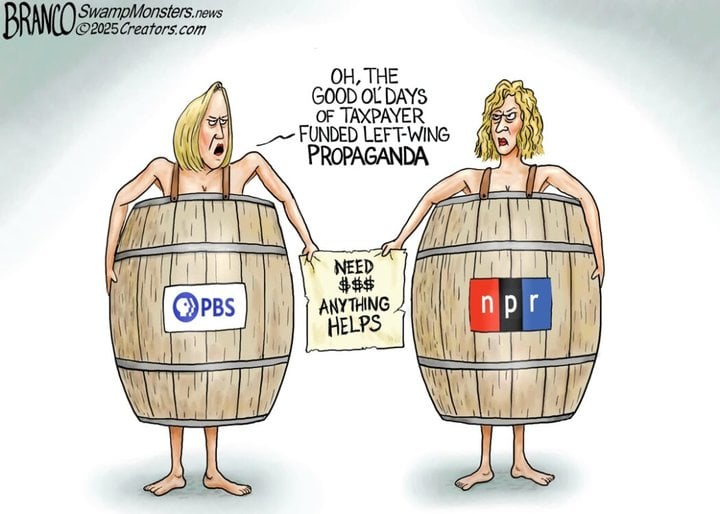NPR sues Trump administration, claims funding cuts violate First Amendment rights
Weeks after the Trump administration announced that it was instructing the Corporation for Public Broadcasting to stop funding National Public Radio and the Public Broadcasting Service, NPR and several publicly owned radio stations are suing.
NPR filed the suit on Tuesday along with three Colorado-based radio stations that claim the cuts would violate the stations' First Amendment rights. Additionally, they claim that the White House is overstepping its authority, given that funding is appropriated by Congress.
President Donald Trump's executive order indicates that public radio stations would be ineligible to receive funds if they utilize NPR content. "Congress has for decades promoted, supported and protected from governmental interference the speech of private entities in the public broadcasting system, including NPR and non-commercial radio stations like the Local Member Stations," NPR said in the suit. "In so doing, Congress recognized not only that promoting and supporting public broadcasting serves the public interest, but also that such speech remains private—and thus fully protected from censorship, retaliation or other forms of governmental interference, consistent with the Constitution and our country’s democratic traditions."
The Trump administration argues that government funding of news media in this environment is not only outdated and unnecessary but is corrosive to the appearance of journalistic independence. "Americans have the right to expect that if their tax dollars fund public broadcasting at all, they fund only fair, accurate, unbiased, and nonpartisan news coverage. No media outlet has a constitutional right to taxpayer subsidies, and the government is entitled to determine which categories of activities to subsidize," President Trump wrote in the executive order.
NPR filed the suit on Tuesday along with three Colorado-based radio stations that claim the cuts would violate the stations' First Amendment rights. Additionally, they claim that the White House is overstepping its authority, given that funding is appropriated by Congress.
President Donald Trump's executive order indicates that public radio stations would be ineligible to receive funds if they utilize NPR content. "Congress has for decades promoted, supported and protected from governmental interference the speech of private entities in the public broadcasting system, including NPR and non-commercial radio stations like the Local Member Stations," NPR said in the suit. "In so doing, Congress recognized not only that promoting and supporting public broadcasting serves the public interest, but also that such speech remains private—and thus fully protected from censorship, retaliation or other forms of governmental interference, consistent with the Constitution and our country’s democratic traditions."
The Trump administration argues that government funding of news media in this environment is not only outdated and unnecessary but is corrosive to the appearance of journalistic independence. "Americans have the right to expect that if their tax dollars fund public broadcasting at all, they fund only fair, accurate, unbiased, and nonpartisan news coverage. No media outlet has a constitutional right to taxpayer subsidies, and the government is entitled to determine which categories of activities to subsidize," President Trump wrote in the executive order.



